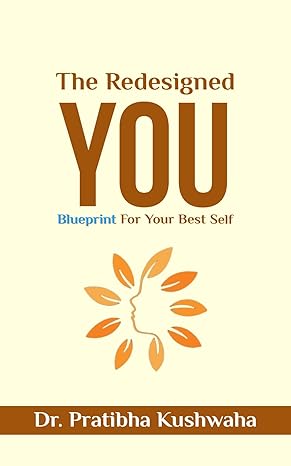Introduction:
Have you ever paused to consider that your entire existence might just be a complex tapestry of memories? At first glance, this notion might seem perplexing, even unsettling. However, as we delve deeper into this concept, we uncover fascinating insights about the human experience and the pivotal role memory plays in shaping who we are.
As a practicing advocate, certified NLP coach, and author of “The Redesigned You,” I’ve spent considerable time exploring the intricacies of the human mind. Today, we’ll embark on a journey to understand how our lives, our very existence, is fundamentally rooted in memory.
The Ancient Brain and Evolutionary Memory:
To truly grasp this concept, we must first acknowledge the ancient nature of our brains. The human brain, as we know it today, is the product of millions of years of evolution. Throughout this extensive period, countless impressions and experiences have been imprinted on our cognitive machinery, gradually shaping the development of Homo sapiens.
This evolutionary memory forms the bedrock of our instincts, reflexes, and even some of our most basic behaviors. It’s a testament to the power of memory operating on a grand, species-wide scale.
The Spiritual Perspective: Rebirth and Karma:
While science offers one lens through which to view this concept, spiritual traditions provide another intriguing angle. Many belief systems embrace the idea of rebirth or reincarnation. At its core, this concept suggests that the essence of an individual – their soul, if you will – carries memories or imprints from past lives into future incarnations.
Even for those who don’t subscribe to the idea of literal rebirth, the principle of karma operates on a similar premise. The notion that our actions in this life will have consequences in the next is, in essence, a form of cosmic memory. It implies a continuity of experience and consequence that transcends a single lifetime.
The Universe as a Memory Bank:
Taking a broader view, we can consider the entire universe as a vast repository of memory. Science tells us that energy can neither be created nor destroyed – it merely transforms from one form to another. If we accept that everything in the universe is interconnected through this energy, then we can conceptualize the cosmos itself as a kind of memory bank, storing information about every event and interaction since the dawn of time.
From this perspective, our individual existence can be seen as a localized expression of this universal memory, a unique configuration of cosmic energy and information.
The Infant Mind: A Blank Slate?
Bringing our focus back to the individual human experience, let’s consider the marvel of infant development. A newborn enters the world with what appears to be a blank slate. Yet, from the moment of birth – and even before – this tiny being begins absorbing information at an astounding rate.
Every sight, sound, touch, and experience becomes imprinted in the infant’s rapidly developing brain. These early memories form the foundation upon which all future learning and development will be built. Without this capacity for memory, each day would be a reset, and the cumulative learning that characterizes human development would be impossible.
Memory: The Foundation of Learning and Skill Development:
As children grow, their ability to form and retain memories becomes crucial to their development. Consider the process of learning to write. A child must remember how to hold a pencil, how to form each letter, and eventually, how to string those letters into words and sentences. This process relies entirely on the brain’s ability to store and recall information.
The same principle applies to every skill we acquire throughout our lives. From tying shoelaces to driving a car to mastering a musical instrument, each ability is built upon layers of memories – muscle memory, visual memory, auditory memory, and more.
Relationships and Social Interactions:
Our ability to form and maintain relationships is also deeply rooted in memory. We recognize family members, friends, and colleagues because we remember them. We know how to interact with different people in various contexts because we have memories of past social experiences and learned social norms.
Even our emotional responses to others are often based on memories of past interactions. The warmth we feel towards a loved one or the discomfort we might experience around someone we’ve had conflicts with – these are all manifestations of our memory at work.
Likes, Dislikes, and Personal Preferences:
Have you ever wondered why you have a favorite food or why certain smells evoke strong emotions? These preferences and reactions are often deeply rooted in memory. From a young age, our experiences with various stimuli create associations in our brains. Positive experiences lead to positive associations, while negative experiences can create aversions.
For instance, if you were given a particular type of food repeatedly as a child, your body’s cells have essentially “memorized” this as a safe and familiar source of nutrition. This memory informs your current preferences, often without you even realizing it.
Creativity and Innovation: Remixing Memories:
At first glance, creativity might seem to be the antithesis of memory – after all, isn’t creativity about creating something new? However, a closer look reveals that even our most innovative ideas are often recombinations of existing memories and experiences.
When an artist paints a landscape, they’re drawing not just on what they see, but on every landscape they’ve ever seen, every technique they’ve learned, every emotion they’ve experienced in nature. Similarly, scientific breakthroughs often come from connecting seemingly unrelated pieces of information in new ways – a process that relies entirely on the scientist’s accumulated knowledge and experiences, all stored in memory.
Culture and Heritage: Collective Memory:
Our sense of cultural identity and heritage is perhaps one of the most profound expressions of collective memory. The traditions we follow, the holidays we celebrate, the values we hold dear – these are all passed down through generations, creating a sense of continuity and shared identity.
This transmission of cultural memory is what allows societies to maintain their unique characteristics over time. Without memory, each generation would start from scratch, and the rich tapestry of human culture would unravel.
The Importance of Memory Health:
Given the crucial role memory plays in every aspect of our lives, it’s clear why memory loss can be so devastating. Conditions like Alzheimer’s disease or severe amnesia don’t just affect a person’s ability to recall facts – they can fundamentally alter an individual’s sense of self and their ability to interact with the world.
This underscores the importance of maintaining cognitive health throughout our lives. Just as we exercise our bodies to keep them fit, we should also engage in activities that challenge and stimulate our minds to keep our memories sharp and our cognitive abilities strong.
Conclusion:
As we’ve explored in this post, memory is far more than just the ability to recall facts or events. It is the very foundation of our existence, shaping our identities, our relationships, our skills, and our understanding of the world around us.
From the evolutionary memories encoded in our DNA to the personal experiences that make each of us unique, from the collective memories that form our cultures to the creative recombinations that drive innovation – memory touches every aspect of the human experience.
By recognizing the profound importance of memory, we can gain a deeper appreciation for the complexity of our own minds and the rich tapestry of experiences that shape who we are. It reminds us to cherish our experiences, to continually seek new knowledge, and to take care of our cognitive health.
After all, we are not just living our lives – we are constantly creating and reshaping the memories that define our existence. In this light, every moment becomes an opportunity to enrich the intricate memory that is our life.


